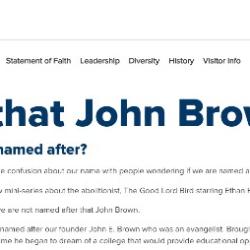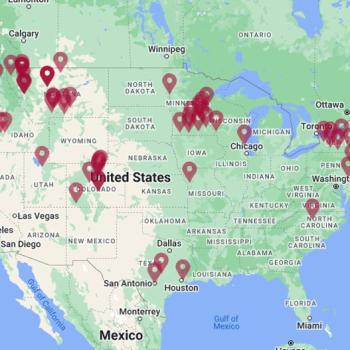Since today is a Canadian holiday, let’s listen to a great Canadian:
“Everybody knows” was a theme in two otherwise disparate stories in the news over this weekend — one involving a sexually abusive Hollywood producer, the other involving a Republican senator’s war of words with a Republican president.
The first story was prompted by an ambitious New York Times investigative report by Jodi Kantor and Megan Twohey, “Harvey Weinstein Paid Off Sexual Harassment Accusers for Decades.”
An investigation by The New York Times found previously undisclosed allegations against Mr. Weinstein stretching over nearly three decades, documented through interviews with current and former employees and film industry workers, as well as legal records, emails and internal documents from the businesses he has run, Miramax and the Weinstein Company.
… Dozens of Mr. Weinstein’s former and current employees, from assistants to top executives, said they knew of inappropriate conduct while they worked for him. Only a handful said they ever confronted him.
Mr. Weinstein enforced a code of silence; employees of the Weinstein Company have contracts saying they will not criticize it or its leaders in a way that could harm its “business reputation” or “any employee’s personal reputation,” a recent document shows. And most of the women accepting payouts agreed to confidentiality clauses prohibiting them from speaking about the deals or the events that led to them.
Weinstein’s long, sordid history of predatory behavior has been described as an “open secret” in Hollywood. That’s an odd phrase. It suggests something that is widely known, but not widely talked about. An “open secret” is not just a secret that everybody knows, but a secret that everybody keeps.
Of course, “everybody” doesn’t mean everybody. An open secret in Hollywood’s inner circles isn’t something most of us outside of the film industry would ever hear or know. Most of the general public will only dimly recognize Weinstein as an occasional participant in the anticlimactic culmination of every Academy Awards ceremony — the acceptance speech for Best Picture, which is given not by its director, its writer, or its stars, but by the executives who financed it. Some of us who read a bit more in the entertainment press may also have been aware of Weinstein’s reputation as a shamelessly aggressive award-season campaigner and as a bullying tycoon — a “You’ll never eat lunch in this town again!” character. But this open secret hadn’t trickled out to most of us before the Times big report made its splash last week.
And I’m sure that even within Hollywood, this wasn’t something that everybody knows. But many, many people did. For a long time. It was a secret that many people knew and, before last week’s report, it was a secret that many people — for various reasons — helped to keep. As Kantor and Twohey reported:
“It wasn’t a secret to the inner circle,” said Kathy DeClesis, Bob Weinstein’s assistant in the early 1990s. She supervised a young woman who left the company abruptly after an encounter with Harvey Weinstein and who later received a settlement, according to several former employees.
It also was not a secret to those harmed — directly or indirectly — by Weinstein’s actions. Or to those who knew them well. For them, this “open secret” wasn’t one they wanted to keep, but one they had no way of revealing. As the actress Ashley Judd said, “Women have been talking about Harvey amongst ourselves for a long time, and it’s simply beyond time to have the conversation publicly.”
It’s been beyond time for a long time, so what finally made it possible for this open secret to get aired? Rebecca Traister addresses this: “Why the Harvey Weinstein Sexual-Harassment Allegations Didn’t Come Out Until Now.” Traister recounts a 2000 incident in which Weinstein erupted in angry violence, publicly, in front of all the cameras gathered for a gala publicity party:
Such was the power of Harvey Weinstein in 2000 that despite the dozens of camera flashes that went off on that sidewalk that night, capturing the sight of an enormously famous film executive trying to pound in the head of a young newspaper reporter, I have never once seen a photo. Back then, Harvey could spin — or suppress — anything; there were so many journalists on his payroll, working as consultants on movie projects, or as screenwriters, or for his magazine.
… Weinstein didn’t just exert physical power. He also employed legal and professional and economic power. He supposedly had every employee sign elaborate, binding nondisclosure agreements. He gave jobs to people who might otherwise work to bring him down, and gave gobs of money to other powerful people, who knows how much, but perhaps just enough to keep them from listening to ugly rumors that might circulate among young people, among less powerful people. For decades, the reporters who tried to tell the story of Harvey Weinstein butted up against the same wall of sheer force and immovable power that was leveraged against those ambitious actors, the vulnerable assistants, the executives whose careers, salaries, and reputations were in his hands.
All of that “legal and professional and economic power” was enough, 15 years ago, to keep the open secret of Weinstein’s vile treatment of women an openly kept secret. But, as Traister writes:
Something has changed. Sources have gone on the record. It’s worth it to wonder why. Perhaps because of shifts in how we understand these kinds of abuses. Recent years have seen scores of women, finding strength and some kind of power in numbers, come forward and tell their stories about Bill Cosby, Roger Ailes, Bill O’Reilly, Donald Trump. In all of those cases, as in this case, the history of allegations has been an almost wholly open secret, sometimes even having been reported in major outlets, and yet somehow ignored, allowed to pass, unconsidered.
But now our consciousness has been raised. And while repercussions have been mixed — Cosby is set to go to trial again in April; Ailes and O’Reilly lost powerful jobs but walked away with millions; Donald Trump was elected president — it is in part the fact that we have had a public conversation that has helped those for whom telling their stories seemed impossible for so long suddenly feel that speaking out might be within their reach.
That is surely one part of the story. But I don’t think it’s the whole story.
This alone, Traister says, isn’t enough to explain what has changed. Part of the explanation, she argues, is that Harvey Weinstein no longer wields the same level of power he once did:
It’s hard not to consider the circumstances, the years, the risks, and the work put in by so many to convince so many others to be able to come forward, and the fact that perhaps only a weakening of Weinstein’s grip permitted his expensive self-crafted armor to finally be pierced.
I think she’s right. And I suspect what she says here also applies to the “open secrets” involved in that other story from this weekend about something “everybody knows.” So let’s come back to that in a bit.

















